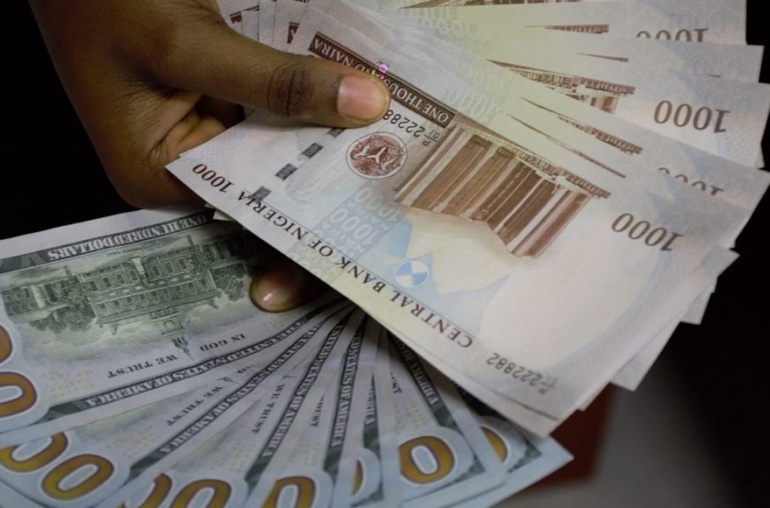
With the US and other countries battling growing inflation, Nigeria, going by its textbook definition, seems to be experiencing stagflation instead.
The world continues to feel the effect of economic policies from the Covid-19 pandemic and the ongoing Russia-Ukraine conflict. The US Consumer Price Index(CPI) for June shows that inflation reached highs last recorded four decades ago. Unfortunately, the US isn’t alone. While the CPI for the US stands at 9.1%, the Eurozone’s annual inflation is up to 8.6%.
The Federal Reserve, European Central Bank(ECB), and other economic regulators have become increasingly hawkish in reigning in the galloping inflation. For the first time in 11 years, the ECB raised interest rates by 50 basis points(BPS). Meanwhile, the Feds increased interest rates by 75 BPS for the second consecutive time in July, bringing the total number of hikes in 2022 alone to four.
Federal Funding Rates Since 2013. Source: Federal Reserve Economic Data
The chart above reveals how aggressive the current interest hike by the Feds has been. From near 0% due to pandemic relief measures, it shot up to 1.21% in June. However, the latest 75 BPS increase takes it to 2%, bringing about growing fears of an economic recession which the white house has downplayed.
Developing Countries Feel The Strain
While developed countries continue to feel the strain and try to manage the situation, emerging economies continue to have it worse. In its latest global economic outlook, the International Monetary Fund (IMF) revised the projected inflation upwards for emerging and developing countries.
Image credit: IMF
The image above shows that the IMF expects inflation to reach 6.6% in advanced economies and 9.5% in emerging markets. This new outlook represents 0.9% and 0.8% upward revisions, respectively, in percentage points to initial forecasts. More worrisome is the fact that the dire situation is projected to remain elevated for a long time.
Consequently, the growing inflation has increased cost prices amidst supply chain disruptions and historically tight labor markets for emerging economies. Previously the IMF had expressed concerns for these countries, urging them to adjust their fiscal policies to cope with the challenges.
The international monetary body describes emerging economies as characterised by high debts, Forex exposure and low current account balance. These countries also experienced a more increased local currency cash flow than the US dollar. They further highlighted that slower growth and higher vulnerabilities could cascade into a sharp decline in their economic activities. This situation has forced some emerging economies to start exploring crypto options.
Several countries like El Salvador and the Central Africa Republic have turned to Bitcoin as a legal tender to help their economies. Other countries, including Nigeria and Malawi, have seen their citizen turn to digital assets as a hedge against inflation.
The Curious Case Of Nigeria
Like every other emerging economy, Nigeria is battling identical economic challenges to the rest of the world. The Nigerian Bureau of Statistics(NBS) has revealed that inflation in Nigeria is 18.6%. Joining other apex banks, the Central bank of Nigeria(CBN) has also increased its interest rate from 13% to 14% to combat inflation. However, the cascading effects on the economies differ vastly.
Nigeria’s situation presents a curious case because her economic predicament satisfies many stagflation conditions. Compared with Inflation, this financial situation is much worse and is more challenging to handle.
Image showing components of stagflation. Source: CorporateFinanceInstitute.com
Stagflation is an economic condition characterised by high inflation, weak economic growth, and persistently high unemployment. This unfavourable condition challenges governments globally as most actions designed to lower inflation may raise unemployment. Also, measures implemented to tackle unemployment may worsen inflation.
There are two schools of thought on the causes of stagflation— supply shock and poor economic policies. According to the supply shock theory, stagflation happens when an economy experiences a sharp rise or fall in the supply of a good or service. For example, a sharp rise in the price of oil results in increased production and less profitability. This eventually slows economic growth.
The second school of thought holds that bad economic policies may cause stagflation. For instance, the government may adopt a measure that damages specific sectors of the economy while expanding the money supply too quickly. The implementation of these policies at the same time may result in slower economic development and higher inflation.
Going by any of these theories, Nigeria presents a textbook case of a country in stagflation. The supply shock is seen in the lingering fuel scarcity -despite the promising prospects in the oil sector- and price increase in the country is one testament to this narrative. Also, our import-dependent economy, which makes us rely on a shrinking dollar supply, further exacerbates the situation.
Consequently, concerned Nigerians have called for the implementation of several policy changes that would help alleviate the economy. Dr. Aloy Chife, a renowned businessman and information technology expert, tweeted measures to be adopted. He highlighted the need to float the naira and allow demand and supply to determine the exchange rate while also calling for reduced government spending and a cut on subsidies.
With the current economic challenges the way it is, Nigerians must brace up and employ measures to cope with the galloping inflation. This would ensure their survival while we navigate the current uncharted terrain.
Do you think Nigeria is in stagflation, or do we just have a high inflation rate? Let us know your thought in the comments below.

Chris is a crypto enthusiast and a firm believer in the blockchain’s ability to create a new financial paradigm. Through writing, Chris hopes to expose the intricacies of this disruptive technology and how it is beneficial to Africans and developing countries. He aims to give readers a rational and unbiased outlook of the industry by equipping them with the necessary information to make enlightened investment decisions.


